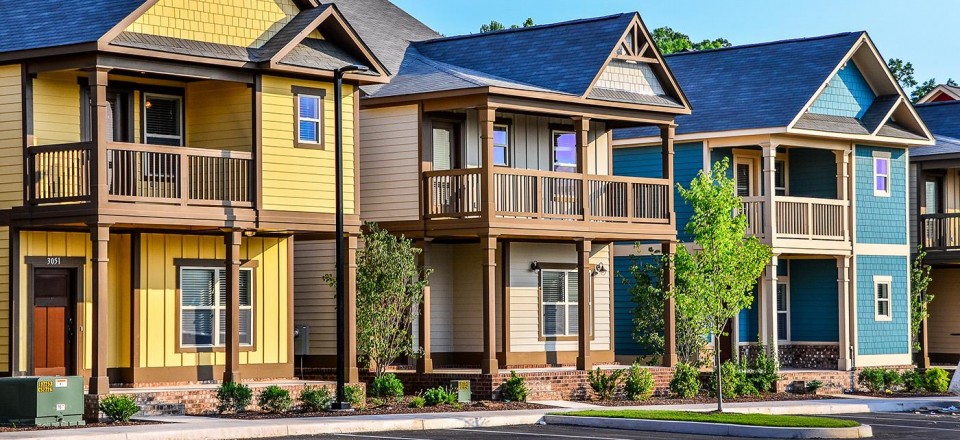 by Dave Best
by Dave Best
As you plan your journey to college, you might dream of leaving home, launching the next chapter in your life, meeting new friends, and preparing to earn a degree. But are you ready to live on your own?
You probably checked whether the colleges on your list have the majors you intend to study, whether they have a nice campus, a good gym, and good food. You might already root for the football team and be interested in greek life. Have you considered where you will live while in college? Perhaps you saw the freshman dorms. Where will you live during the rest of your college years?
The advantages of living on campus are numerous. You will be more connected with your school and meet new people in your dorm. It is more likely you will participate in extracurricular activities. Importantly students who live on campus have higher graduation rates. Typically it is more convenient to get to classes, your meals are served at the dining halls, and you can work off those calories at the gym. There is campus security to keep you safe and residence life advisors to help you as needed.
Dorm life provides you a furnished room or perhaps a suite. You do not have to worry about electricity, cable or internet. Walking to class with your friends often is easier than trying to commute to campus. Your neighbors are your classmates and they, too, probably like to stay up late and not wake up early.
As a teenager dorm life can be fun. You might need to learn how to follow the rules, share a bedroom with a classmate, and maybe even share a bathroom with all your hallmates. Many consider this the full college experience.
As you target your ideal school, you might want to think about whether you actually can live on campus beyond freshman year. Many schools these days have far more undergraduate students than beds on campus. Colleges expand their enrollment but sometimes do not build a comparable number of new dorms to house those new students.
In fact, many highly-regarded schools, both public and private, have most students living off campus. They might market this housing as near campus. Some apartment complexes might be privately owned but available only for college students. There may be school run campus shuttles to get to classes. Some students might drive but parking can be limited or inconvenient. At many colleges you will see scooters as the transportation mode of choice, with these “mopeds” lined up as far as you can see with special designated parking.
Some state flagships like the University of Texas at Austin have almost four out of five students living off campus. At the University of Florida, the University of Wisconsin and the University of California Berkeley nearly three out of four undergraduates are not living on campus. Even some major private universities like USC and the University of Miami have around two in every three undergrads live off campus. When you factor in that almost all freshman live on campus at those schools, that means very few upperclassmen are living in the dorms.
Advantages of off campus living can include learning to be more independent. You will be responsible for a lease and the monthly bills that come with it to keep the lights on, perhaps the water running, television and internet. Some like the privacy and perceived freedom outside campus. You might like to buy your own groceries and cook your own meals. Some students can save money living off campus, but you truly need to add up all the costs to make a true comparison. There are also some luxurious living options near some schools that are more expensive.
There are many colleges where you can live on campus if you choose to. For example at Syracuse, Rice, Boston College and Duke on average three out of four students live on campus. At some schools almost all undergraduates live on campus all four years such as Middlebury, Stanford, Lafayette, Harvard, Pomona and High Point.
So as you compare schools do not forget to check into residential life on campus. More than just seeing a dorm, check whether you can live on campus throughout college if you want to. Or be prepared to get a scooter, ride the shuttle or public transportation, or get a car to commute to classes.




